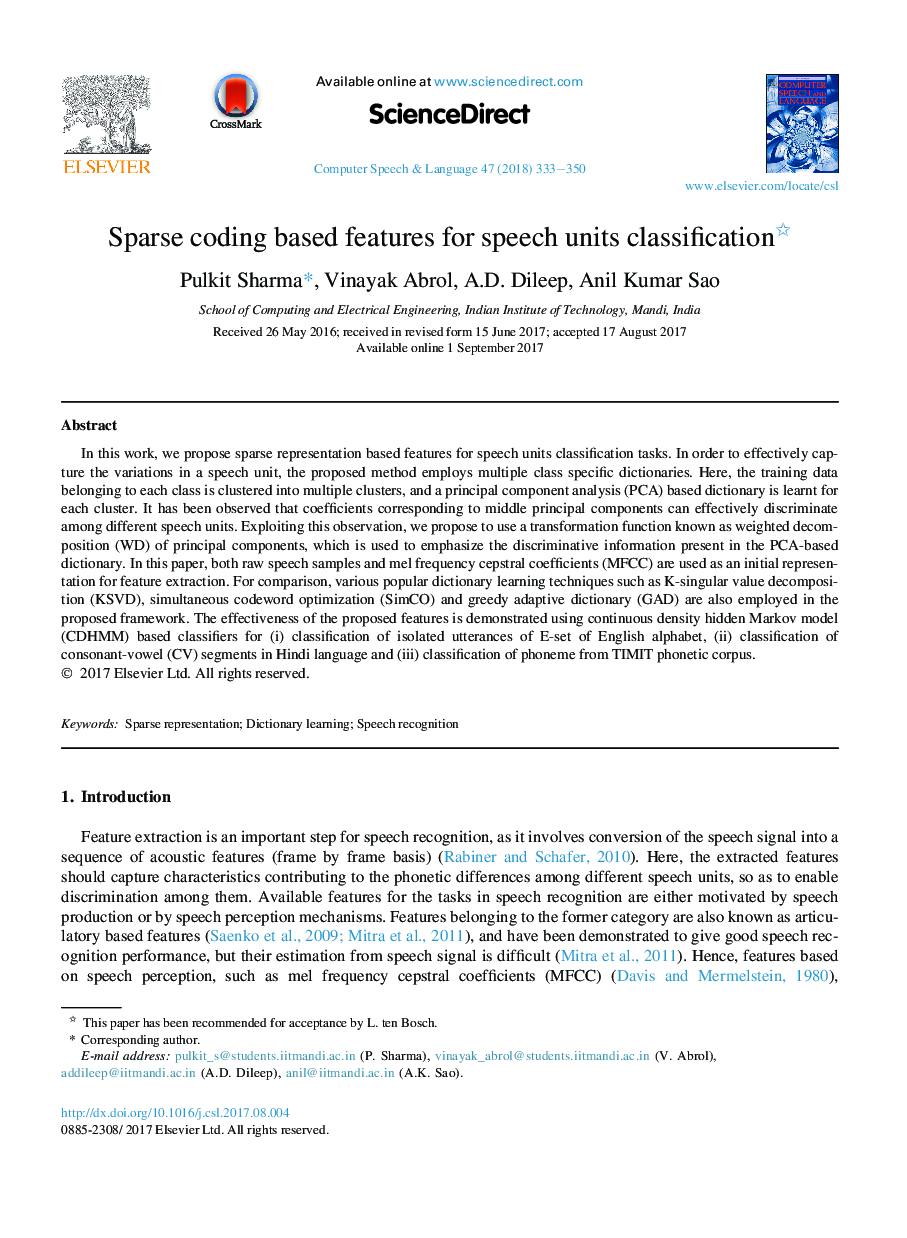| Article ID | Journal | Published Year | Pages | File Type |
|---|---|---|---|---|
| 4973653 | Computer Speech & Language | 2018 | 18 Pages |
Abstract
In this work, we propose sparse representation based features for speech units classification tasks. In order to effectively capture the variations in a speech unit, the proposed method employs multiple class specific dictionaries. Here, the training data belonging to each class is clustered into multiple clusters, and a principal component analysis (PCA) based dictionary is learnt for each cluster. It has been observed that coefficients corresponding to middle principal components can effectively discriminate among different speech units. Exploiting this observation, we propose to use a transformation function known as weighted decomposition (WD) of principal components, which is used to emphasize the discriminative information present in the PCA-based dictionary. In this paper, both raw speech samples and mel frequency cepstral coefficients (MFCC) are used as an initial representation for feature extraction. For comparison, various popular dictionary learning techniques such as K-singular value decomposition (KSVD), simultaneous codeword optimization (SimCO) and greedy adaptive dictionary (GAD) are also employed in the proposed framework. The effectiveness of the proposed features is demonstrated using continuous density hidden Markov model (CDHMM) based classifiers for (i) classification of isolated utterances of E-set of English alphabet, (ii) classification of consonant-vowel (CV) segments in Hindi language and (iii) classification of phoneme from TIMIT phonetic corpus.
Related Topics
Physical Sciences and Engineering
Computer Science
Signal Processing
Authors
Pulkit Sharma, Vinayak Abrol, A.D. Dileep, Anil Kumar Sao,
